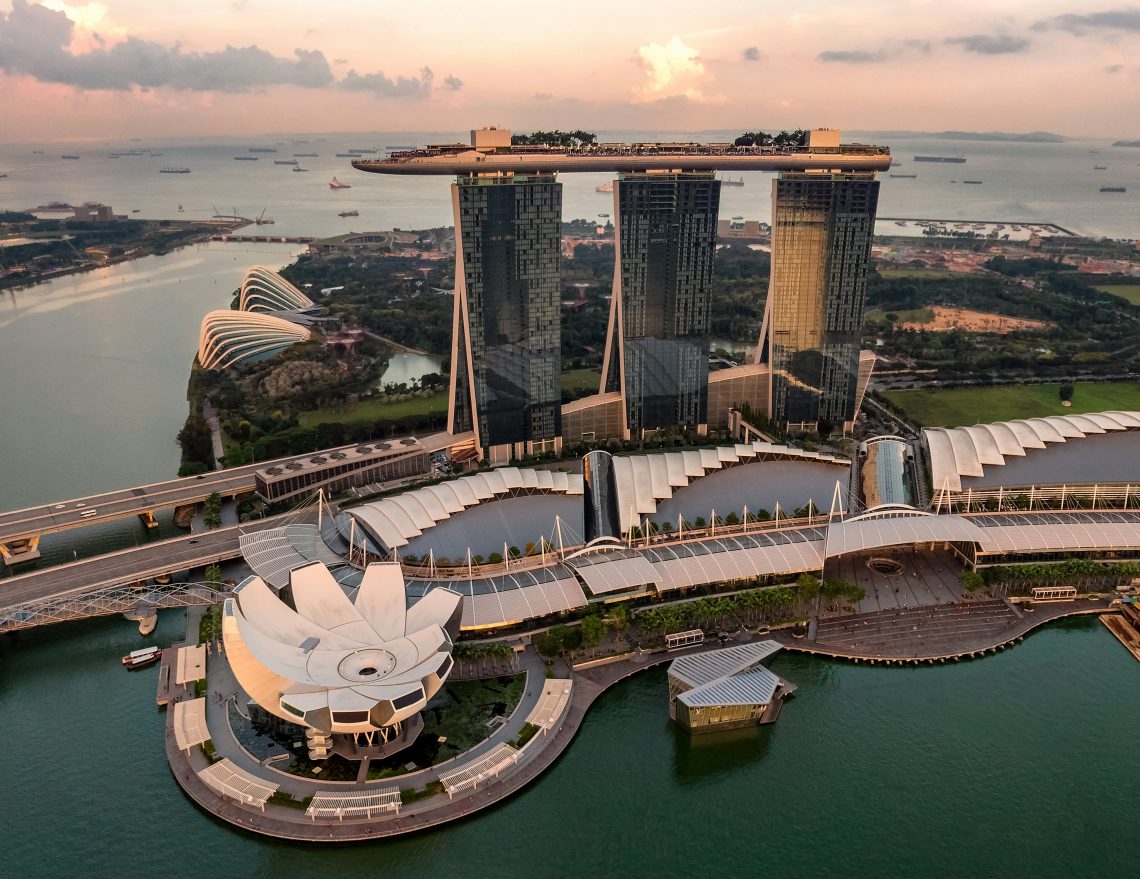For many in Singapore, earning a foreign degree locally—through institutions like SIM GE—offers the best of both worlds: international recognition with home-ground convenience. You keep your job, stay close to family, and still graduate with a globally respected qualification. But is it the right move for you? The answer depends on your priorities—global branding, local flexibility, or long-term career growth. Before you commit, make sure the programme aligns with your goals, your budget, and your timeline.
The Rise of Foreign Degrees in Singapore

You are part of a generation in Singapore that can pursue a foreign degree without relocating. In 2025, this “study locally, graduate globally” path—often delivered through transnational education (TNE)—lets you read an overseas university’s curriculum at a local campus or via blended delivery, while earning the same parchment awarded abroad. That model has become familiar to prospective students and parents, especially as providers explain how cross-border programmes work and how awards are conferred.
What “foreign degrees” mean in Singapore (2025)
When you enrol in a TNE programme here, you register with a Private Education Institution (PEI) that partners an overseas university. Your learning is delivered in Singapore, but academic standards, assessment, and the degree-issuing university are foreign. Importantly, private education is regulated: PEIs must be registered and meet baseline requirements, and you’re expected to check course permission status before you commit. This helps you evaluate whether a foreign award delivered locally aligns with your goals.
Why this model has grown in 2025
Clearer consumer safeguards: You operate in a system with an appointed regulator—the Committee for Private Education (CPE) under SkillsFuture Singapore (SSG)—that oversees the sector and guides students through due diligence steps (e.g., registration checks, permitted course lists, and fee protection schemes). This clarity gives families confidence to choose a foreign degree pathway without leaving Singapore.
Quality signals you can verify: EduTrust is the quality-assurance scheme you look for when comparing providers, especially if you want assurance on governance, student support, and continuous improvement. Being able to verify a school’s status and track record, in addition to course permission, supports informed choices in 2025.
Active enforcement and advisories: You also benefit from public advisories that flag unregistered operators and potential scams. These advisories reinforce the importance of checking official registers and certifications before paying fees—another reason the local delivery of a foreign award remains viable and trusted.
Access to outcomes data: SSG continues to surface graduate employment insights specific to PEIs. Having a central, regularly updated resource helps you judge whether a local route to a foreign degree can translate into the employment outcomes you want.
Wide programme choice close to home: Established providers—SIM GE (the Singapore Institute of Management Global Education)—partner overseas universities to offer diploma, undergraduate and postgraduate pathways on a single Singapore campus. For you, that means fewer logistics, more stability, and a route to a foreign credential with extensive student services and networks.
| What to verify in 2025 | Why it matters to you | Where to check (source) |
|---|---|---|
| PEI registration & permitted course status | Confirms the provider is allowed to offer the foreign degree locally | MOE “Private education” guidance; SSG PEI lists (2025) |
| EduTrust certification | Signals quality systems, student protection and continuous improvement | SSG “Guide for Choosing a PEI” (2025) |
| Fee protection schemes | Protects unconsumed course fees if a PEI cannot continue operations | SSG “Guide for Choosing a PEI” (2025) |
| Graduate employment insights | Helps you estimate ROI for a foreign degree completed in Singapore | SSG PEI Graduate Employment Survey (2025) |
| Enforcement advisories | Alerts you to unregistered operators and scam risks | SSG Student Advisories (2025) |
Sources: MOE Private Education (2025); SSG Private Education Resources and Guide for Choosing a PEI (2025); SSG PEI Graduate Employment Survey (2025); SSG Student Advisories (2025).
What this rise means for you
You now have more ways to balance ambition with commitments. If you work part-time or support family, local delivery of a foreign degree reduces relocation costs and time away, while still granting you access to overseas curricula and assessment standards. Because the ecosystem emphasises registration, EduTrust, fee protection and public advisories, you can shortlist providers methodically and minimise risk.
Just as importantly, you can focus on fit. Compare how each provider—whether a large multi-partner institution like SIM GE (the Singapore Institute of Management Global Education) or a niche PEI—supports academic integrity, employer engagement and career services. Verify who awards the parchment, how assessments are moderated, and what internship or networking options exist. These checks ensure your local path to a foreign award genuinely supports your goals in Singapore’s labour market.
The Advantages of Studying Locally for an Foreign Degree
In Singapore, the option to pursue foreign degrees without leaving the country has become an increasingly attractive choice—particularly through institutions like SIM GE (Singapore Institute of Management Global Education). For many students, studying locally while attaining an internationally recognised qualification offers a strategic blend of global exposure and local convenience. This chapter explores the core benefits of this approach, especially for Singaporean students weighing the costs, timelines, and career outcomes of a foreign degree.
Global Qualifications, Local Accessibility
Through partnerships with reputable universities from the UK, Australia, and the United States, SIM GE enables students to earn foreign degrees without needing to relocate. These programmes are 100% delivered in Singapore, often by faculty appointed by the overseas universities themselves. This model provides you with the same academic rigour and curriculum as your peers overseas, while bypassing the hefty costs and disruptions of international relocation.
Moreover, staying in Singapore gives you the advantage of remaining connected to your local professional network. You can attend internships, part-time jobs, and even industry events that align with your future goals—allowing you to build career capital in your home market without sacrificing academic ambition.
Cost Efficiency Without Compromising Quality
One of the most compelling advantages of studying locally for a foreign degree is financial. According to SIM GE’s 2025 tuition guide, the average cost of completing a UK-awarded Bachelor’s degree locally is S$25,000–S$35,000, compared to over S$100,000 when factoring in overseas living expenses. This savings can be redirected towards certifications, postgraduate studies, or even early investments.
Below is a comparison between the cost of studying the same foreign degree locally versus abroad in 2025:
| Programme Type | Institution | Location | Estimated Cost (S$) |
|---|---|---|---|
| UK Bachelor’s Degree | University of London via SIM GE | Singapore | 28,000 |
| UK Bachelor’s Degree | Same University (on-campus) | United Kingdom | 105,000 |
| Australian Master’s Degree | RMIT University via SIM GE | Singapore | 32,000 |
| Australian Master’s Degree | RMIT (on-campus) | Australia | 90,000 |
Source: SIM GE Tuition Guide 2025 and official overseas university fee portals.
Familiar Environment, Greater Stability
For many Singaporeans, staying close to home while earning a foreign degree also offers emotional and logistical stability. You’ll avoid challenges like housing uncertainty, visa complications, and cultural adjustment stress. These factors can significantly affect your mental wellbeing and academic performance, particularly if you’re new to independent living abroad.
Living at home or in familiar surroundings can also mean better time management, stronger family support, and fewer distractions. This balance often leads to higher completion rates and stronger academic outcomes than those observed among international students facing cultural and environmental upheaval.
Local Relevance, Global Recognition
SIM GE’s foreign degree programmes are carefully selected to reflect Singapore’s evolving industry needs. Whether you’re pursuing business, IT, psychology, or logistics, the course content is often customised with a regional flavour—offering examples and case studies relevant to the ASEAN context.
Simultaneously, because these degrees are awarded by globally accredited universities, your qualification remains valid and respected abroad. This creates a dual advantage: you gain skills that are employable locally and qualifications that are portable internationally—especially useful if you plan to work overseas in the future or seek global mobility in your career.
The Challenges and Limitations Students Should Consider for Foreign Degrees
While the appeal of earning foreign degrees through local institutions like SIM GE is undeniable, it’s equally important to weigh the limitations that may impact your academic experience and future career prospects. As with any major educational decision, being aware of potential challenges allows you to plan proactively, avoid disappointment, and make informed choices that align with your long-term goals as a Singaporean student.
Recognition Variability and Industry Perception
Not all foreign degrees are perceived equally in the local job market. Some employers in Singapore may prioritise candidates from autonomous local universities—such as NUS, NTU, or SMU—over graduates from private education institutions, even when the latter hold degrees from reputable overseas universities. This is particularly relevant in public sector hiring, where certain civil service roles only recognise qualifications from MOE-accredited local institutions or overseas universities ranked in the top tiers.
In 2025, Singapore’s Ministry of Education does not maintain a centralised list of accredited foreign degrees, meaning the burden falls on you to verify your chosen programme’s industry acceptance. While SIM GE’s partner universities often rank well in their home countries, you must check whether the specific programme meets the recognition criteria of professional bodies (e.g., ACCA, SSG, or MCI). Failing to do so could limit your eligibility for roles in regulated sectors such as finance, law, and education.
Limited Campus Experience and Networking
One often overlooked drawback of pursuing a foreign degree locally is the lack of a full overseas campus immersion. While SIM GE provides a supportive learning environment, you miss out on the international exposure, global classroom diversity, and cross-cultural experiences that come with studying abroad. This can affect your adaptability, language skills, and global networking capacity—all of which are highly valued in multinational companies.
Additionally, many students report that alumni networks and industry connections from overseas campuses do not always extend fully to local transnational programmes. You may find fewer internship pipelines or career placement resources compared to students studying on-campus at the source university.
Academic Load and Teaching Models
Another key consideration is the academic structure of foreign degrees delivered locally. While the curriculum mirrors that of the home university, teaching styles, expectations, and workloads may vary significantly from local educational norms. For instance, some UK-based programmes place a stronger emphasis on independent learning and critical analysis, which may be unfamiliar to students accustomed to structured lesson plans.
Moreover, certain modules may be accelerated to fit Singapore’s trimester system, leading to more compressed workloads. This can be challenging if you are juggling part-time work or other responsibilities.
Comparison of Key Limitations in 2025
| Limitation | Impact on Student | Common in SIM GE Foreign Degrees? |
|---|---|---|
| Non-universal Recognition | Possible employer bias; restricted civil service roles | Yes |
| Lack of Overseas Immersion | Limited international exposure and networking | Yes |
| Compressed Academic Calendar | Higher intensity and time pressure | Sometimes |
| Weak Professional Links | Fewer industry tie-ins compared to local public unis | Depends on programme |
Source: Singapore Ministry of Education guidelines (2025), SIM GE Programme Factsheets (2025)
Career Impact — How Employers View Foreign Degrees Earned in Singapore
As you consider pursuing a foreign degree through institutions like SIM GE in Singapore, a vital question arises: how do employers actually perceive these qualifications in today’s job market? In 2025, employer perception has become increasingly nuanced, influenced by evolving hiring criteria, industry demands, and the rising number of transnational education graduates. Understanding these perceptions is essential to positioning yourself for post-graduation success.
Recognition and Credibility: A Mixed Landscape
Foreign degrees offered through private education institutions in Singapore, such as SIM GE, generally carry recognised academic value—especially when awarded by reputable universities in the UK, Australia, or the US. However, employer reactions vary depending on the industry, the specific foreign university, and whether the programme aligns with current workforce needs.
In sectors like marketing, business, IT, and hospitality, employers are often open to hiring graduates with foreign degrees earned locally, especially if the curriculum reflects practical skills and international standards. That said, for more regulated fields like law, medicine, or public service, candidates from local autonomous universities (e.g. NUS, NTU, SMU) are often preferred.
Employability and Industry Fit
SIM GE has made strategic efforts to bridge academic learning with employability. Its partner universities often embed industry projects and real-world case studies into the curriculum. In 2025, 83% of SIM GE graduates were employed within six months of graduation, according to the Graduate Employment Survey (GES) by CPE Singapore. This figure demonstrates growing employer trust in the capabilities of foreign-degree holders from SIM GE.
However, you should also note that some hiring managers may view foreign degrees earned locally as having less “international exposure” compared to those earned overseas. To compensate, internships, part-time jobs, and industry certifications are increasingly important add-ons to boost your job-readiness and CV appeal.
Comparison of Employer Perspectives in 2025
| Employer Type | View on SIM GE Foreign Degrees | Recommended Candidate Enhancements |
|---|---|---|
| SMEs (Local) | Generally receptive, focus on attitude and adaptability | Relevant internships, certifications |
| MNCs (Singapore-based) | Neutral-positive, value global curriculum | Project experience, communication skills |
| Public Sector | Preference for local autonomous university graduates | Supplement with public-sector internships or volunteer work |
| Startups & Tech Firms | Highly skills-focused, credentials secondary | Portfolio, coding skills, hackathon participation |
Source: Graduate Employment Survey (GES) 2025, Ministry of Manpower Employer Insights 2025
Strategies to Strengthen Career Impact
To ensure your foreign degree earned in Singapore has optimal career impact, you should proactively build a compelling personal profile. This includes gaining hands-on experience, participating in cross-cultural teams, and engaging with alumni networks. At SIM GE, career development services and career fairs with top employers offer real opportunities—provided you engage early and consistently.
Your degree opens doors, but your actions keep them open. By leveraging SIM GE’s resources and the credibility of its partner universities, you can shape a career that aligns with both your education and your ambitions.
Is a Local Path to a Foreign Degree Right for You?
Choosing whether to pursue a foreign degree through a local institution like SIM GE is a decision that depends on your academic goals, financial considerations, and long-term career aspirations. With more Singaporeans seeking internationally recognised qualifications while staying grounded in their home country, the local pathway offers a middle ground between global exposure and practical affordability. But is it right for you?
Key Considerations to Guide Your Decision
If you value cost-efficiency, staying close to family, and maintaining part-time work or internships during your studies, the SIM GE route may be ideal. Tuition fees for foreign degrees delivered in Singapore can be up to 70% lower than studying overseas, according to SIM GE’s 2025 fee guide. Additionally, local living costs are significantly more manageable compared to those in the UK, Australia, or the US.
However, if your priorities include immersive international experiences, exposure to different cultures, or a broader global alumni network, a full overseas education may serve you better. It’s also worth noting that some employers—particularly in the public sector—may prioritise graduates from Singapore’s autonomous universities or those with overseas on-campus credentials.
Decision Matrix for Singaporean Students (2025)
| Factor | SIM GE (Local) | Full Overseas Study |
|---|---|---|
| Average Tuition & Living Cost | S$30,000–S$45,000 | S$100,000–S$150,000 |
| International Exposure | Moderate | High |
| Career Services Access | Singapore-based employers & events | Global internship & placement opportunities |
| Programme Recognition | Strong, varies by industry | Strong, especially with global brands |
Source: SIM GE Prospectus 2025, Study in Singapore Cost Index 2025
Ultimately, a local path to a foreign degree offers a strategic compromise for students in Singapore—you can gain international credentials without uprooting your life. If you are self-motivated, cost-conscious, and committed to enhancing your employability through internships and skills training, the SIM GE model can work to your advantage. But if your goals are deeply tied to overseas networks, multicultural immersion, or migration plans, then studying abroad may offer a better return on investment.
Conclusion
Choosing to study locally while pursuing a foreign degree is a strategic decision. You trade relocation logistics for the efficiency of a Singapore-based route while keeping global credentials. The benefits are clear: access to international syllabi, potential cost savings, and stability. The caveats are real: recognition details, campus immersion, and employer expectations.
Anchor your choice to outcomes—target roles, industries, and the skills Singapore employers reward. Check accreditation, assessments, and industry exposure. If these align, a local path to a foreign degree can be powerful. Shortlist providers. Verify recognition by industry and geography. Compare internships and networking.
If you value structure and proximity, a Singapore-delivered foreign degree—through established institutions, including options at SIM Global Education (SIM GE)—balances credibility with practicality. If full immersion and international networks matter most, a direct oversea degree route may fit better. Decide with intention. Plan your budget and timeline. Build experience alongside the classroom. In the end, your career story is shaped as much by the skills you compound as by the name on your parchment.
Frequently Asked Questions:
🔎Is a foreign degree from SIM GE recognised by employers?
Yes, many employers in Singapore recognise foreign degrees awarded through SIM GE, particularly in industries like business, IT, and marketing. However, recognition may vary in government or regulated sectors where local public university degrees are preferred.
🔎 How much does a foreign degree in Singapore cost?
In 2025, the cost of completing a foreign degree locally through SIM GE typically ranges from S$25,000 to S$45,000, which is significantly lower than the S$100,000 to S$150,000 needed to study overseas.
🔎Can I work while studying at SIM GE?
Yes, many students balance part-time jobs or internships while pursuing foreign degrees at SIM GE. The flexible schedules and local location make it feasible to gain work experience alongside your studies.
🔎Do SIM GE foreign degrees offer international exposure?
SIM GE’s foreign degrees offer global curricula and teaching models but lack full overseas immersion. You can gain limited international exposure through global projects, online modules, or optional exchange programmes.
🔎Who should avoid pursuing a foreign degree locally?
Students aiming for deep cultural immersion, international campus life, or migration opportunities may prefer studying abroad, as local delivery models like SIM GE may not meet those goals fully.
References:
https://www.msig.com.sg/blogs/pros-and-cons-studying-overseas-singaporeans
https://www.idp.com/singapore/blog/why-getting-an-overseas-degree-can-boost-your-employability/




